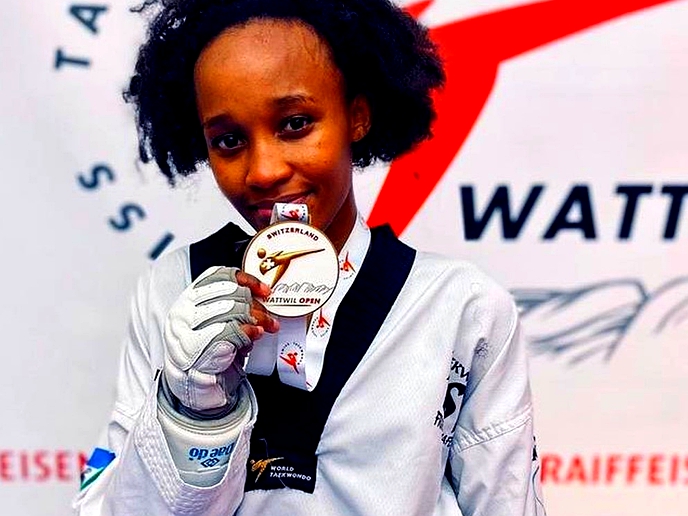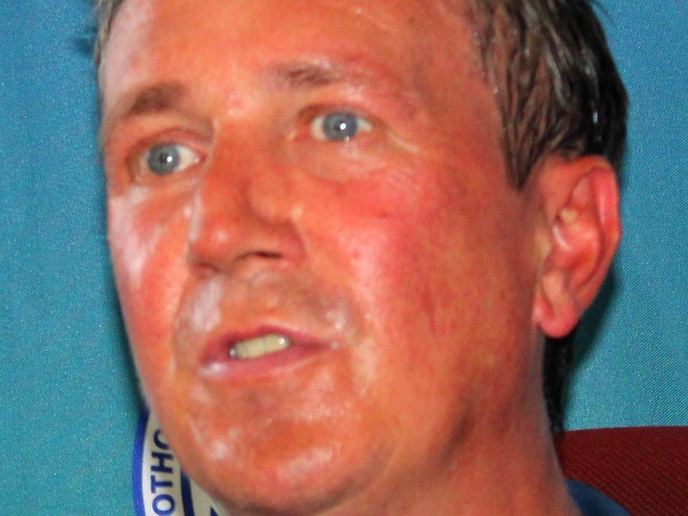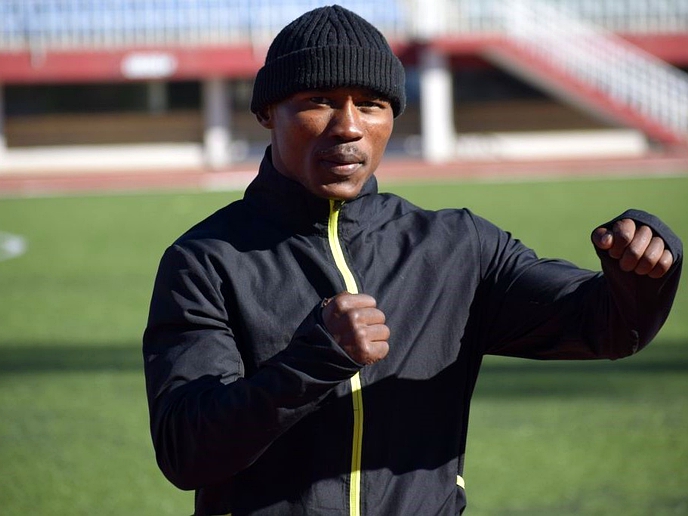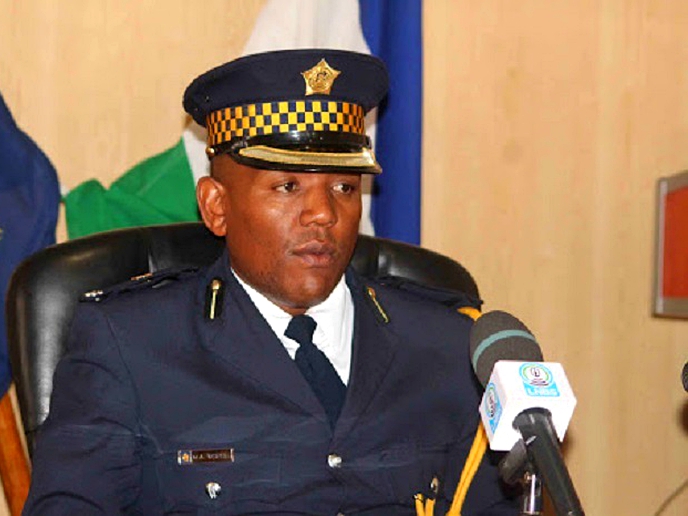MASERU - Football in Lesotho like other industries has been hit hard by the COVID-19 pandemic following a long lay-off, but it finally managed to make a come-back towards the end of the year. The Lesotho Football Association (LeFA) media team sat down with Secretary General Mokhosi Mohapi (MM) to discuss the most challenging times in the history of the beautiful game in the Mountain Kingdom.
sports
Dec. 29, 2020
STAFF REPORTER
8 min read
2020 a difficult year for football: Mohapi
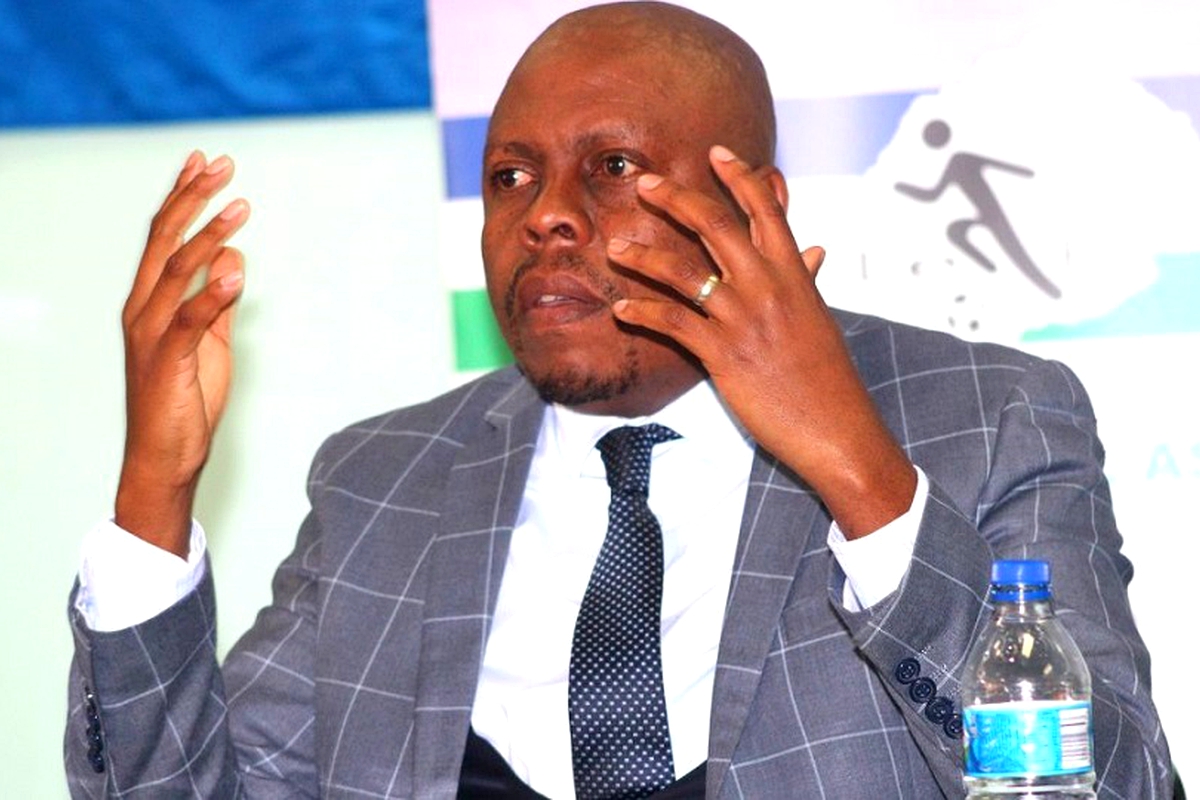
LeFA Secretary General Mokhosi Mohapi
LeFA: 2020 has been a difficult year for football world-wide due to the COVID-19 pandemic, but surely it is a relief to finally have the Lesotho Premier League back in action after the long lay-off. What is your take on that?
MM: There are two sides to this issue, the first one is that the return to football gives the football fraternity and indeed the entire spectrum of society hope that together this pandemic can be defeated. Football is a catalyst for most if not all sectors of the economy and with football being played frequently. For example, the food and beverages industry benefits when football is being played, the transport sector as spectators cross the country and that requires fuel and many more sectors.
The downside to the return to football especially with fans being allowed to attend matches increases the risk factor given the behaviour of many football fans. You will agree with me that many a football is not easy to convince that in this new normal, things are done a bit differently. It is going to be a challenge for the clubs, the association and in the ultimate the government. We just hope that the worst does not obtain.
LeFA: All this came after a lot of hard work, having had to convince the government that football is ready for the return?
MM: Let me put it this way, convincing governments to listen to the football administration so soon after assuming office is never easy at all. You will recall the circumstances in which the government changed and there were uncertainties and perceptions. It was not difficult at all convincing the National COVID-19 Secretariat or NACOSEC as it is known. The job was made easier because our return to football document contained scientific protocols, which doctors and medical practitioners at NACOSEC did not find hard to understand. Our presentation has been lauded as the best packaged and presented by NACOSEC and the Right Honourable the Prime Minister of the Government of Lesotho.
LeFA: It has proved a difficult job already to pick up the pieces after the long lay-off as we have already witnessed with the performance of the national teams that had to immediately return to international competitions.
MM: It is true. I mean in a normal situation, the period required from a period of three to four weeks of post season is about six to seven weeks depending on each coach’s preference, but to return to full competition within three weeks of initial training is demanding the impossible. This is evident in the manner in which Lesotho teams participated in international matches.
LeFA: The association has also had to prepare all its stakeholders for the return to football with workshops and trainings, working closely with NACOSEC. How important were these trainings?
MM: These trainings were extremely important. They were structured in a manner that all stakeholders would be trained firstly on the Corona Virus itself and its characteristics and then again on how to minimise the occurrence of infection and how to mitigate the different scenarios where the potential to get infected would happen. I must commend NACOSEC throughout the country for the support that they rendered to LeFA when the training started. To date they still support the association in mitigating the pandemic.
LeFA: However, it was not all smooth sailing for the national teams making their return to international football especially the Senior Women’s team and the National Under-20 side. What are your opinions on the matter?
MM: Like I said, for them, they were staring down the barrel of a fully loaded gun, but it had to happen. We cannot sit on our laurels and lament the performance forever. We knew exactly what the risk was. The risk was on two fronts - the first one was that of exposing the nation to the imported Corona Virus and the other was losing badly in the matches. With regards to importing the Corona Virus into the country from the epicentre of the pandemic in South Africa, I think this is one area where LeFA showed that by partnering with the NACOSEC, we went in there knowing well what to expect and how to behave in the instance. The lessons from the NACOSEC training equipped everyone in the team on how to deal with the situation. As for the results, I did mention that it was never going to be life as usual, and the results do show.
LeFA: We are not yet out of the woods. What needs to be done going into 2021 to make sure that there is an improvement in the performances of all the national teams?
MM: What is obvious is the fact that the Corona Virus is here to stay for a little longer that it was anticipated. This then implies that we have to develop survival and operational strategies given the requirement of our fraternity. There will be the technical strategies such as starting to prepare large pools of players for the final competitions. Large pools of players because we learnt the hard way when our key players had to be left out on the eve of crucial matches. Therefore, we need to behave differently knowing that anything unimagined will happen. Secondly, we need to augment our risk management strategies aimed at minimising the occurrence of the virus within the players. We have already held talks with the League Management and as the National Executive Committee; we did not mince our words regarding the relaxed approach that has been observed in the opening weekend of the league. Screws need to be tightened up and the association has invested a lot of money in compliance training offered to the teams and this needs to be put into full implementation.
Enjoy our daily newsletter from today
Access exclusive newsletters, along with previews of new media releases.
LeFA: The association was busy with grassroots and youth development programmes just before the suspension of football activities due to COVID-19 pandemic. This is another area that has been hit hard by the pandemic…..
MM: Regarding the youth aspect of football, we are facing a plethora of problems, firstly it is the resumption of the academic activities to catch up with lost time and the youth footballers are spending a lot of time in classes. Yes, we do understand that this will affect our activities, but we also are aware of the importance of education. Unfortunately, we cannot find a balance at this time given the priorities scale. Secondly, children are exposed to risk at school and it would be naïve of us to increase the risk factor by opening youth football activities just like that. We need a systematic opening of football activities lest football becomes a super spreader as it has been termed. By March 2021, when we come out of a potential second wave we should be in a position to roll-out youth football activities after having studied the environment and the potential hazards.
LeFA: The A Division and Women Super League are also yet to start. When are they scheduled to return?
MM: In light of the festive period that we are already in, the association’s leadership has advised itself that the other leagues will start in the first or second weekend of January 2021. The resolution has been reached in cognizant of the fact that if all leagues are to open, the risk of football becoming a super spreader will rise drastically and by delaying the other league it could be one way of reducing the risk
LeFA: Lack of sports facilities particularly during this period of the pandemic remains a headache. How soon can the facilities in Mohale’s Hoek and Bambatha Tšita Sports Arena be available to host matches?
MM: It is envisaged that by the end of February 2021, both facilities will be functional. The artificial turf fields have arrived in South Africa from the Netherlands and the only snag is the issue of LRA (Lesotho Revenue Authority) who are proving difficult to convince regarding the exemption of the two fields.
LeFA: Vodacom Lesotho (VCL) recently made a comeback as the sponsors of the Premier League. How important is it to have such big entities investing in football?
MM: It is great to have the big guns coming on-board as the sponsors of football activities. It increases our value and brings in excitement to the game. The partnership could not have come at an opportune time when many organisations are actually withdrawing from their social investment projects due to the effects of the COVID-19 pandemic. It is important for companies to get involved now so that when the pandemic recedes, they will have had the opportunity to have laid the foundation in their new environments and I as such applaud the stance taken by Vodacom Lesotho.
Article supplied by LeFA
Tailored for you



